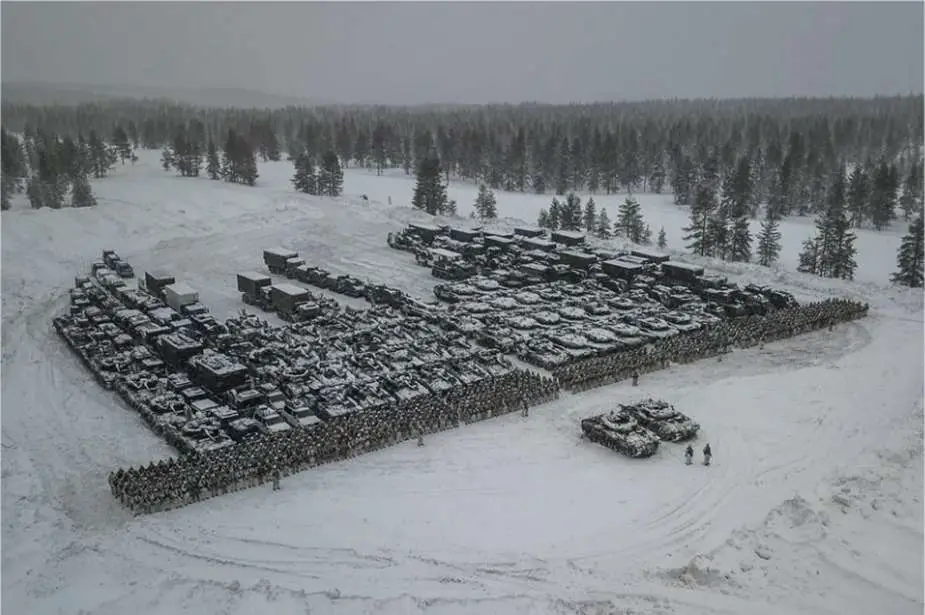Sweden considers sending a battalion to Latvia to strengthen NATO presence
Despite waiting for the approval of its NATO membership by the parliaments of Turkey and Hungary, Sweden is preparing to increase its contribution to NATO's security in Eastern Europe. Swedish Prime Minister Ulf Kristersson announced at the annual "Folk och Försvar" (Community and Defense) Security and Defense Conference that Sweden is considering deploying a battalion to Latvia. This initiative comes in the context of Canada currently leading a multinational tactical group in the country, consisting of troops from several allied nations.
Follow Army Recognition on Google News at this link

The Swedish 192nd mechanized battalion set up for battalion photos (Picture source: Swedish MoD)
Sweden has expressed its intention to join NATO's Enhanced Forward Presence Battle Group in Latvia and to deploy a combat battalion in the country upon finalizing its accession to NATO. Swedish Defense Minister Pål Jonson and other senior officials also participated in discussions on various topics, including Sweden's path to NATO membership, the Russian invasion of Ukraine, and challenges related to misinformation and democracy.
This Swedish deployment, planned for 2025, will include about 600 soldiers from the "South Scania Regiment (P7)," equipped with CV-90 infantry fighting vehicles. This decision follows the resolution made at the NATO Madrid summit in 2022, aimed at enhancing the capabilities of its tactical groups in Eastern Europe, increasing their size from a battalion to a brigade as needed.
The Swedish Ministry of Defense specified that the Swedish contribution would alternate with a Danish battalion, with rotations every six months. General Jony Lindfors, Chief of Staff of the Swedish Army, emphasized the importance of this initiative for Sweden's future role within NATO, highlighting the country's commitment to collective defense.
Mr. Kristersson also expressed that Sweden is capable of contributing more, highlighting its unique military capabilities, particularly in aviation, submarines, intelligence, and winter operations. He emphasized Sweden's strategic role in deploying and transporting allied combat forces in the Baltic region, a maritime area increasingly surrounded by NATO member countries.
This strategic decision coincides with Stockholm's anticipation of becoming the 32nd member of NATO. The induction process for Sweden appears to be nearing completion, pending ratification by Turkey and Hungary. In the meantime, Canada currently maintains the largest troop presence in Latvia, with 1,700 soldiers, and has committed to increasing its military contingent to 2,200 by 2026. Canada also plans to send Griffon and Chinook helicopters and invest 15 million Canadian dollars (11.2 million USD) in new military infrastructure.
Sweden's decision to abandon its long-standing military neutrality stems from the Russian occupation in Ukrainian territory. Turkish President Recep Tayyip Erdogan previously linked the approval of Sweden's NATO membership bid to Stockholm's actions against militant Kurdish groups. Sweden agreed to extradite apprehended members and supporters of the organization while strengthening its anti-terrorism laws. Erdogan also indicated that Turkey's approval depended on the U.S. granting their requested purchase of F-16 fighter jets. Despite this, Sweden has expressed its willingness to support the alliance from outside.
- Hits: 2113
















